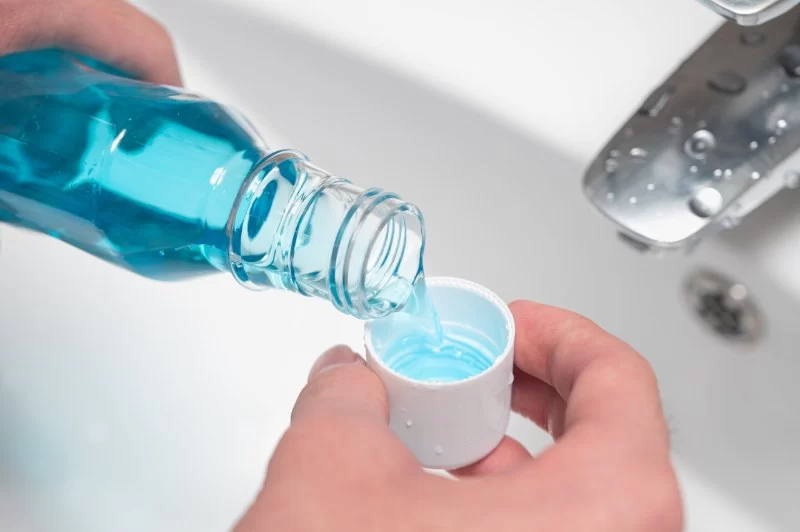
Should Mouthwash Be a Regular Part of Oral Hygiene?
When it comes to maintaining good oral hygiene, brushing and flossing are the standard recommendations that come to mind. However, mouthwash is an often-overlooked yet highly effective tool in the battle against bacteria, bad breath, and plaque. In this article, we will explore the role of mouthwash in oral hygiene, its benefits, and whether or not it should be a regular part of your routine.
Understanding the Importance of Oral Hygiene
Oral hygiene plays a crucial role in your overall health. Poor oral hygiene can lead to a variety of dental problems, from cavities and gum disease to more serious conditions like heart disease. Brushing your teeth twice a day and flossing daily are the foundation of oral hygiene. However, mouthwash can offer additional benefits, providing a deeper clean and helping to address issues that brushing and flossing alone may miss.
While brushing and flossing target the physical removal of food particles and plaque, mouthwash helps reach areas that are difficult to clean, such as the back of the throat, between teeth, and along the gum line. But, the real question remains: should mouthwash be part of your daily routine?
What Exactly Does Mouthwash Do?
Mouthwash is a liquid product designed to be swished around the mouth to help reduce oral bacteria, freshen breath, and sometimes, to help with specific oral health issues. There are many different types of mouthwashes available, each serving a particular purpose:
- Antiseptic Mouthwash: Contains ingredients like alcohol or chlorhexidine that help kill bacteria in the mouth, preventing plaque buildup, gingivitis, and gum disease.
- Fluoride Mouthwash: Contains fluoride, which helps strengthen tooth enamel and prevent cavities.
- Cosmetic Mouthwash: Primarily designed to freshen breath temporarily, without addressing the underlying causes of bad breath.
- Prescription Mouthwash: Available through a dentist, these mouthwashes contain stronger ingredients to treat specific conditions like dry mouth or severe gum disease.
By helping to kill bacteria and freshen breath, mouthwash contributes to a cleaner, healthier mouth. But, how does it stack up against the more traditional methods of oral hygiene?
Is Mouthwash Necessary for Daily Oral Hygiene?
While mouthwash is certainly beneficial, the question remains: is it necessary for everyone? For some, it may be a helpful addition to their oral care routine, while for others, it might not be essential. Let’s break down some key factors to consider:
- Bad Breath (Halitosis): If you struggle with chronic bad breath, mouthwash can provide quick relief by killing odor-causing bacteria. However, addressing the root causes (like gum disease or dry mouth) is essential for long-term improvement.
- Gum Disease or Gingivitis: Mouthwash with antiseptic properties can help manage the early stages of gum disease by reducing plaque and inflammation. It can be a valuable addition to your routine if recommended by your dentist.
- Prevention of Cavities: Fluoride mouthwashes can complement brushing by providing added protection against cavities, especially if you’re at higher risk due to a history of tooth decay or poor enamel health.
- Dry Mouth: For individuals who suffer from dry mouth (xerostomia), mouthwashes that help stimulate saliva production or contain moisturizing agents can provide relief.
In short, mouthwash can be a beneficial tool for improving oral health, but it should not replace brushing and flossing. Rather, it should be seen as an additional step in a comprehensive oral hygiene routine.
Why Some People Might Skip Mouthwash
While mouthwash has its advantages, there are some reasons why people might opt not to use it regularly:
- Alcohol Content: Many mouthwashes contain alcohol, which can lead to a dry mouth if used too frequently. This can be uncomfortable, especially for people who already suffer from dry mouth.
- Overuse of Mouthwash: Using mouthwash too frequently can upset the natural balance of bacteria in the mouth, potentially causing irritation or even making the problem worse. It’s essential to follow the recommended usage guidelines on the product label.
- Not Addressing the Root Cause: While mouthwash can temporarily mask bad breath or kill bacteria, it doesn’t address the underlying causes, such as gum disease or tooth decay. Regular dental checkups and proper brushing/flossing are still key to maintaining long-term oral health.
How to Choose the Right Mouthwash
With so many options on the market, choosing the right mouthwash for your needs can be overwhelming. Here’s how to select the right one for your oral health:
- If you want to fight bad breath: Choose a mouthwash that specifically targets bad breath. Many of these contain antimicrobial ingredients that eliminate the bacteria causing the odor.
- If you need to prevent cavities: Opt for a fluoride mouthwash, which can strengthen tooth enamel and reduce the risk of decay.
- If you’re managing gum disease: Look for an antiseptic mouthwash that contains chlorhexidine or another antimicrobial agent to fight plaque and bacteria.
- If you have sensitive teeth or gums: Consider using an alcohol-free mouthwash that is gentler on the mouth and will not cause irritation.
Real-Life Experiences: How Mouthwash Has Helped Others
One of our readers, Sarah, struggled with gum sensitivity and frequent bad breath. After visiting her dentist, she was recommended a fluoride and antiseptic mouthwash combination. Within weeks, Sarah noticed a significant improvement in her gum health and a drastic reduction in her bad breath. Her dentist explained that the mouthwash worked in tandem with her brushing and flossing routine to reduce plaque buildup and strengthen her enamel.
Another case is John, who had been battling dry mouth due to medication. He found relief by using a hydrating mouthwash specifically designed for dry mouth, which helped moisturize his mouth and reduce the discomfort associated with his condition.
Final Thoughts: Should Mouthwash Be Part of Your Routine?
Ultimately, mouthwash can be a valuable addition to your oral hygiene routine, but it should not replace regular brushing and flossing. By choosing the right product and using it as directed, you can enhance your oral health, fight bad breath, and support overall dental care.
If you’re unsure whether mouthwash is right for you or want to learn more about improving your oral hygiene routine, visit Family Dentistry Online for expert advice and recommendations.







 Arise Dental - Your Local Peoria Dentist4.0 (205 review)
Arise Dental - Your Local Peoria Dentist4.0 (205 review) Light Dental Studios of University Place4.0 (279 review)
Light Dental Studios of University Place4.0 (279 review) Dentists of South Pasadena4.0 (124 review)
Dentists of South Pasadena4.0 (124 review) Aurora Dental Care4.0 (153 review)
Aurora Dental Care4.0 (153 review) ClearChoice Dental Implant Center4.0 (383 review)
ClearChoice Dental Implant Center4.0 (383 review) Kansas City Dentures and Implants5.0 (15 review)
Kansas City Dentures and Implants5.0 (15 review) The Importance of Oral Health Education During Pregnancy for a Healthy Pregnancy
The Importance of Oral Health Education During Pregnancy for a Healthy Pregnancy Best Tips for Brushing Your Teeth Properly for Healthy Gums: Essential Techniques for Oral Health
Best Tips for Brushing Your Teeth Properly for Healthy Gums: Essential Techniques for Oral Health Why Skipping Dental Checkups Can Lead to Bigger Oral Health Problems
Why Skipping Dental Checkups Can Lead to Bigger Oral Health Problems Advantages of Porcelain Dental Restorations
Advantages of Porcelain Dental Restorations How Can Diabetes Cause Tooth and Gum Problems? Preventing and Managing Oral Health Issues
How Can Diabetes Cause Tooth and Gum Problems? Preventing and Managing Oral Health Issues Healthy Habits for Promoting Good Oral Health and Hygiene: Tips for a Healthy Smile
Healthy Habits for Promoting Good Oral Health and Hygiene: Tips for a Healthy Smile